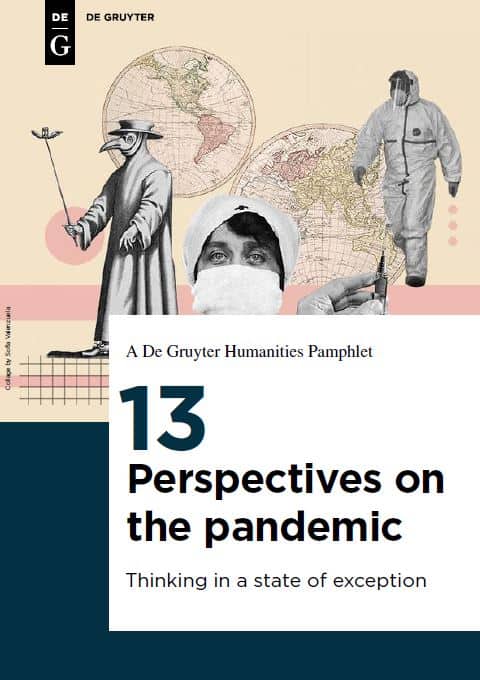Dangerous Comparisons: Historical Pandemics and Covid-19
It's almost impossible to go a day without stumbling upon an article, podcast or media interview that makes an explicit comparison between Covid-19 and a pandemic in history. Yet, the one-size-fits-all comparisons don't work in most cases.
This essay was first published in the free digital pamphlet 13 Perspectives on
the Pandemic: Thinking in a state of exception.
Comparisons with the past tend to proceed the same way. Is Covid-19 like the medieval Black Death (c. 1346–1352 CE)? Articles that examine the Black Death force the writer to admit that the Black Death killed half the population of Europe, which is hopefully far different from Covid-19. Moreover, the Black Death comparisons will often get the history wrong by adding in Plague Doctors, for example, that only existed centuries after the medieval period. What about everyone’s new “favorite” pandemic, 1918 Influenza? Both had similar symptoms, but the Influenza Pandemic’s impact is hard to know from the political, economic, and social changes of the end of World War I. Its direct impact on human memory and culture will likely differ from today.
Behind all of these comparisons is an assumption that we can learn lessons that will save us today or, at least, offer hope for the future. After all, we are supposed to feel better knowing that our suffering now might lead, for example, to a leveling of economic inequality, like the Black Death that “ended” feudalism. Drawing a simple line between the Black Death and the end of feudalism, while tossing in the start of the Renaissance is a minor industry during the first few months of Covid-19. Medieval historians are quick to note that this idea is simply wrong. More importantly, a pandemic by itself does not make the world more just and equitable.
Flaws and Simplifications
These comparisons are not just flawed, but also simplify how people experience pandemics. What history does offer are not global comparisons, but rather examples of local responses and effects. The Third Plague Pandemic (c. 1855–1955) offers some useful thoughts, although it too should not simply be compared. This less well-known pandemic spread around the world from Hong Kong starting in 1894. Plague killed millions in South Asia over several decades, but far fewer in other places. In San Francisco, for example, it killed “only” 300 people over 4 decades.
“What history does offer are not global comparisons, but rather examples of local responses and effects.”
Responses to this plague pandemic were also driven by very different human reactions. In India, for example, it led to new sanitary laws that forever transformed society and shaped future disease outbreaks. In California, Governor Henry Gage dragged his feet and refused to admit plague was in San Francisco, since it would have led to a ban on the export of Californian goods to other states. He went so far as to pull strings in Washington D.C. to get the local medical expert fired. Economics, not science, was, and still is, driving policy decisions.
The Governor Gage story seems reminiscent of numerous U.S. governors today. We have clearly not learned much from the past nor should we expect policy makers today to make necessary changes based on the past. Many elected officials are not more progressive or responsive than Governor Gage, even though they have more scientific knowledge available to them.
An Adequate Response?
The Californian plague example does demonstrate how hard it was to respond adequately to the outbreak of a disease. It eventually required close coordination between elected officials, public health workers, and the local population to maintain an approach that all of them could support. Just as moving from a feudal system to a non-feudal system was hard work in the medieval period with various effects, we should not take a better future for granted. The work that goes into these changes can too often get lost in larger sweeps of disease history. If past pandemics can teach us anything, it is how hard and how infrequent more just and equitable outcomes really are.
Learn more in this related title from De Gruyter
[Title Image via…]
